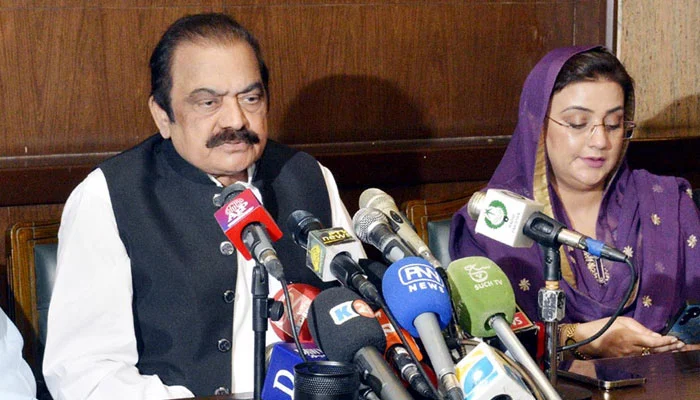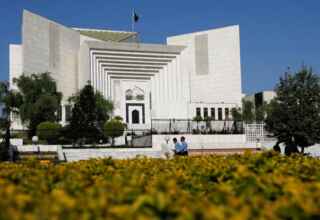
Interior Minister Rana Sanaullah has stated that any statement about the allocation of funds to the Election Commission of Pakistan (ECP) for holding elections in Punjab would be premature until Parliament makes a decision.
The minister said during Geo News programme ‘Aaj Shahzeb Khanzada Kay Saath‘ on Wednesday after the Supreme Court ordered to hold elections in Punjab on May 14, which is considered a critical turning point for Pakistan’s political landscape.
A three-member bench of the apex court unanumously ordered to hold the elections in Punjab and declared the ECP order to delay the election in Punjab and Khyber Pakhtunkhwa “unconstitutional”.
The bench — led by Chief Justice of Pakistan (CJP) Umar Ata Bandial and comprising Justice Munib Akhtar, and Justice Ijaz Ul Ahsan — also ordered the electoral body to hold the polls in Punjab.
Replying to a question about funds for the ECP, Sanaullah stressed that any decision made by the parliament would be binding on the government following the resolution being tabled today, which represents the entire parliament’s order.
The resolution referred to by Sanaullah will be tabled in the lower house of Parliament as mentioned by Prime Minister Shehbaz Sharif on Wednesday.
The premier, voicing his disagreement with the apex court’s proceedings, said that the National Assembly will pass a resolution rejecting the verdict today. Earlier on April 4, the federal cabinet unanimously rejected the SC order.
Sanaullah also said that the upcoming elections will not bear any fruits for Pakistan Tehreek-e-Insaf (PTI) Chairman Imran Khan.
The Pakistan Muslim League-Nawaz (PML-N), on the other hand, is not threatened by the election, the interior minister stressed. What the government seeks is to hold elections on a single day throughout the country, he reiterated.
After the top court’s order, the election commission has notified to start the stalled polling process on April 10.
Reacting to the development in response to a question, the minister said that the ECP is an independent institution and as such free to make a decision about holding elections but its decision is not binding on the government.
He said that if the three-judge bench wants to send the entire parliament home, then it should do so once and for all.







